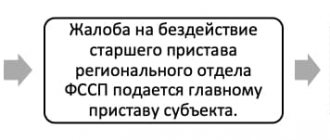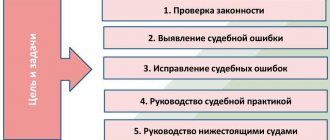APPEAL
Plaintiff – CJSC “V.” appealed to the Moscow Arbitration Court to the Defendant - Federal State Institution "O." to collect the amount of debt in the amount of 6,649,897 rubles. 89 kopecks under the agency agreement dated February 21, 20__
By decision of the Moscow Arbitration Court dated July 5, 20__, the stated claims were denied. By the decision of the Ninth Arbitration Court of Appeal dated 04.10.20__, the appeal was rejected.
When filing this complaint with the court of cassation, the Plaintiff considers the conclusions of the court of first and appellate instances, set out in the decision and resolution, to be inconsistent with the actual circumstances of the case; during the trial, the circumstances relevant to the case were not fully clarified.
The case materials confirm that on 02.21.20__ the parties signed an agency agreement, the subject of which is the distribution of telecommunications services to the Defendant’s clients. In accordance with the terms of the agreement, the Defendant acted as an agent and received remuneration for this in accordance with clauses 3.2 and 3.3 of the Agreement.
In the statement of claim, in the requirements supported during the court hearing, the Plaintiff referred to the fact that: on April 22, 20__ the Parties accepted amendments to the Agreement (in Appendix No. 4), according to which changes were made to clause 3.4 of the Agreement and the a fixed amount of 20__00 rubles, which is due to the Operator with the wording “Network Maintenance”. Thus, according to the Plaintiff, the Defendant incurred a debt in the amount of 5520__0 due to non-payment for services provided to the Defendant from February (inclusive) 2008 to December 2009.
However, the court rejected this argument due to the fact that:
- this application has not been submitted by the Plaintiff;
- certificates of delivery and acceptance of services in the amount of 20__00 rubles. were not compiled monthly and were not sent to the defendant;
- The plaintiff did not provide evidence of the actual provision of services.
- by an act of reconciliation of mutual settlements as of September 30, 2009, the Plaintiff confirms the amount of debt in 684,607 rubles. 99 kopecks
The Plaintiff believes that in concluding that the Defendant has no debt for
services provided, the courts did not fully clarify all the circumstances relevant to the case; they also unreasonably refused to include a number of documents, which was requested by the Plaintiff during the consideration of the case on the merits.
- The materials of the case confirm the fact that despite the failure to provide
to the court signed Appendix No. 4 establishing a fixed amount in the amount of 20__00 rubles. monthly for the services provided, the Defendant transferred funds in the amount of 20__00 rubles for 20 months. To the plaintiff. According to the available documents (the appendix to the Statement of Claim is an act of reconciliation of mutual settlements between the parties as of February 21, 2008), the last payment to the Plaintiff must be made for services provided in January 2008. After this, the Defendant personally changed the agreements reached and paid for money with the wording “telecommunication services” without paying money. amounts of 20__00 rub. for network maintenance. Thus, the court’s argument that the certificates of delivery and acceptance of services in the amount of 20__00 rubles. were not compiled monthly and were not sent to the defendant, is refuted by the reconciliation act signed by the parties, as well as by the documents attached to this complaint (the inclusion of documents was refused during the consideration of the case on the merits - invoices, invoices, acts for June 20__ - December 20__ G.).
It should also be noted that during the consideration of the case on the merits, the Defendant did not put forward counterclaims for unjust enrichment within the amount paid for 20 months of services, he also did not refute the fact that the sum of 20__00 rubles. paid for 20 months.
Despite the inability to provide the court with Appendix No. 4 dated April 22, 20__ signed by the parties, the Defendant’s actions should be recognized as conclusive actions, i.e. the actual transfer of 20__00 rubles per month for 20 months, the signing of the reconciliation report as of 02/21/2008 indicates acceptance, i.e. on the Defendant’s consent to the changes made to the contract and to the amount of payment under the contract, in accordance with the requirements of paragraph 3 of Article 434 and paragraph 3 of Article 438. And in accordance with Article 309.310 of the Civil Code of the Russian Federation, the Defendant becomes obligated to pay the debt incurred for subsequent periods of provision of services.
- The Plaintiff's side in the process of considering the case on the merits and in connection with its position
Based on the Defendant’s position on improper fulfillment of the terms of the contract, a request was made to include in the case materials documents and evidence indicating the proper fulfillment by the Plaintiff of its obligations, namely, including, but not excluding, the conclusion by the Plaintiff of contracts with third-party organizations for the installation of communication lines, network maintenance, purchase of consumables, purchase of content. It is also worth adding that in the middle of the disputed period the Defendant sent letters of gratitude to the Plaintiff for the high-quality provision of services and fulfillment of the terms of the Agreement, which cannot but cast doubt on the fact that throughout the entire period of validity of the Agreement the Defendant fulfilled its obligations with all due responsibility obligations, despite the termination of payment for the maintenance of networks embedded in a large complex of buildings, the Defendant continued to use the services, did not make any claims, and only paid for the provision of telecommunications services, i.e. actually purchasing traffic. It should also be added that the Claimant's work has been highlighted in the media as an example of innovative work in the telecommunications industry.
In this regard, the Plaintiff's side requests that documents evidencing the above circumstances be attached to the case materials.
- The case materials establish that from June 20__ to February 2008, the Defendant
Transferred funds to the Plaintiff under the Agreement, which consisted of: payment for telecommunications services, payment for network maintenance services in the amount of 230,000 rubles. Since February 2008, the Defendant paid the Plaintiff only the costs of telecommunications services. At the same time, reconciliation acts and invoices, as follows from the case materials, were always divided and drawn up separately: for telecommunications services and for network maintenance. Having received verbal guarantees and assurances regarding the payment of the debt for network maintenance, the Defendant actually signed a reconciliation report in September 2009, however, he reasonably assumed and regarded the amount of money indicated in it as a debt for the telecommunications services provided, while repeatedly sending claims to the Defendant indicating for the debt for network maintenance services provided in the amount of RUB 20__00. A signed reconciliation statement stating the debt, without indicating the wording of the debt, under which agreement the debt arose, cannot serve as sufficient evidence of the absence of the Defendant’s obligation to pay for network maintenance services in the amount of 20__00 rubles. monthly from February 2008 to December 2009. The Plaintiff also declares that this evidence is inadmissible, because the reconciliation act does not indicate under which agreement the debt arose; from it it is impossible to draw a conclusion for which positions of the agreement have been or will be settled.
In accordance with Articles 309, 310 of the Civil Code of the Russian Federation, obligations must be fulfilled properly in accordance with the terms of the obligation; unilateral refusal to fulfill the obligation and unilateral change of its terms are not allowed.
Thus, by incorrectly and not fully establishing the circumstances relevant to the case, by refusing to admit the Plaintiff’s side of evidence to confirm the legal position, the court made an unjust decision.
Based on the above, guided by art. 277, paragraph 2, art. 260, part 1, article 270 of the Arbitration Procedure Code of the Russian Federation,
How to restore the deadline for cassation appeal
If the established period has expired, the person has the right to restore it. It is enough to submit an application in which you need to indicate the reason for the absence, attaching supporting documents. The court decides at its own discretion whether to restore the deadline for filing a cassation appeal to the Supreme Court or not.
In the case where a judicial act affected the interests of other persons who did not participate in the litigation, and they wish to file a cassation, they can file a petition within 2 months to restore the deadline. This period begins to expire from the moment the judicial act enters into force.
Important! No more than six months must pass from the moment the judicial act enters into legal force.
Legal assistance in appealing to the Supreme Court
Consultation in the office and by phone
+7(495) 728-99-14
Help from a lawyer. 18 years of experience in appealing to the Supreme Court!
We are working during the quarantine period of 2021! Call.
ASK:
- To cancel the decision of the Moscow Arbitration Court dated July 5, 20__ on the claim of ZAO “V.” to the Federal State Institution "O.", Resolution of the Ninth Arbitration Court of Appeal dated 04.10.20__, to send the case for a new trial to the Moscow Arbitration Court in a different composition.
- Please notify the legal bureau “Moscow Legal” of the date and time of the court hearing, Moscow, st. Maroseyka, 2/15,
Application:
- power of attorney for a representative (1 letter);
- documents on sending additions and material to the Defendant (1 sheet);
- invoice, act, invoice for June 20__ (7 years);
- invoice, act, invoice for July 20__ (7 years);
- invoice, act, invoice for August 20__ (7 years);
- invoice, act, invoice for September 20__ (7 years);
- invoice, act, invoice for October 20__ (3 sheets);
- invoice, act, invoice for November 20__ (7 years);
- invoice, act, invoice for December 20__ (3 years);
- statement of reconciliation of calculations as of February 21, 2008 (5 sheets);
- letter of gratitude dated 10/07/2008 (1 sheet);
- contract dated May 31, 20__ for maintenance (6 sheets);
- contract for the provision of maintenance services dated 08/01/20__ (3 p.)
- connection act dated February 10, 2009 (1 sheet);
- licenses of ZAO V. (for 7 years);
- network maintenance agreement dated April 10, 20__ (for 7 years);
- agreement on connection and inter-operator interaction dated November 1, 2008 (29 pages);
- act of acceptance of communication structures (6 sheets);
- communication quality check protocol dated November 28, 20__ (2 pages)
- contract for installation of a communication line dated January 23, 20__ (7 years);
- agreement for the provision of assessment services dated 09/13/20__ (10 sheets);
- contract for services for servicing the video-on-demand network dated 09/01/2009 (8 sheets);
- network maintenance agreement dated July 1, 2009 (6 pages);
- network maintenance agreement dated 08/01/2009 (9 pages);
- contract for installation of communication lines dated August 12, 2009 (8 sheets);
- copies of articles from T. magazines and "6."
- copy of the decision of the Moscow Arbitration Court dated 07/05/20__
- copy of the decision of the Ninth Arbitration Court of Appeal dated 10/04/20__
- extract from the Unified State Register of Legal Entities (7 pages) (https://msk-legal.ru)
Representative of the Plaintiff by proxy ______________________________/Khoruzhenko A.S./ 04.12.20__
Acceptance of a complaint against an appeal decision for proceedings
Note! Filing a cassation appeal against an appeal ruling of an arbitration court and its acceptance for proceedings is associated with the following features:
- refusal to accept a complaint by cassation and its return can be appealed (part 3 of article 281, article 291 of the Arbitration Procedure Code of the Russian Federation);
- the issue of accepting the complaint, leaving it without progress or returning it is decided by the cassation judge within 5 days after the receipt of the case, and he also sets a date for the hearing, taking into account the time remaining for the opportunity for other participants in the process to file a complaint (Article 278 of the Arbitration Procedure Code of the Russian Federation).
So, this article outlined the requirements for filing a complaint, including the issues of signing it and attaching a set of mandatory documents, presented a sample complaint for download, and also revealed some of the nuances of filing it, accepting it for production, and preparing a response to this document.
To the Federal Arbitration Court
through the Arbitration Court of Kostroma
Plaintiff: Basis-plus LLC
Defendant: Edelweiss LLC
Third party: Kristall LLC
Who files the complaint?
The following have the right to draw up an application and send it to the authorized body:
- participants in a previous trial;
- third parties if their interests or obligations were affected by the decision;
- representatives of interested parties or participants in the process, if they have the appropriate right (for example, a power of attorney has been issued to them).
It is possible to file a complaint to open cassation proceedings after the entry into force of a decision that does not satisfy the applicant. But it is important to note that only the decision made by the Supreme Arbitration Court is not reviewed.
Procedure for submitting documents
After drawing up the complaint, it is necessary to send to other participants copies of the drawn up document and the attached papers related to the case, if the latter are not available to the participants in the process. The package of papers must be delivered either personally against signature, or by registered mail, followed by mandatory notification of delivery. After all participants in the process have been notified of the filing of a cassation appeal, you transfer it to the arbitration court, which made a decision that does not satisfy the plaintiff. He will familiarize himself with the complaint and forward it and the case materials to the cassation court. The procedure takes no more than three days from the date of submission.
If you submit an application directly to the cassation court, it will be returned to you in accordance with Article 275 of the Arbitration Procedure Code of the Russian Federation.
You have the right to file a complaint:
- Personally, by visiting a branch of the arbitration court.
- By registered mail. Please note that in this case, the date of filing will be considered the date recorded on the postal stamp, but the date of receipt of the letter by the arbitration court is considered the date when the documents were received by the office and registered by it. It is from this that the period of three days allotted for consideration and transfer of the case to the cassation court is calculated.
- By filling out a special form on the website of the arbitration court, but specifically in your region. In this case, you have the right to provide documents related to the case electronically.
Notification of the opening of cassation proceedings rests with the applicant. The court only notifies the parties of the court hearing dates.
Reasons for refusal to accept a document
The main organizational reasons for refusal to accept a complaint in the third instance:
- incorrect drafting of the complaint by the applicant that does not comply with the norms of procedural law,
- missing the two-month deadline for appealing a judicial act,
- erroneous determination of jurisdiction when filing an application,
- absence of a power of attorney confirming the applicant’s authority.
Semantic reasons for refusal to consider a cassation appeal:
- the reasons indicated by the applicant are not significant for reviewing the case in cassation,
- the statement is not supported by evidence and is correlated with the case materials.
The documents attached to the complaint, like the complaint itself, are not returned to the applicant.
When making any decision regarding the complaint, the court makes a determination and sends it to the parties.
When preparing a complaint, it is important that the lawyer is aware of responsibility and strives to describe the violations and requirements in as much detail as possible and support them with convincing evidence.
Cassation appeal to the Supreme Court of the Russian Federation in a civil case.
Terms of consideration
As a general rule, the Supreme Court considers cassation appeals within two months. However, if the court considers it necessary to request the case materials from the court of first instance, the period for consideration is increased to three months. In addition to three months, the delivery time for case materials from the regional arbitration court to the RF Armed Forces is added.
At a certain level of complexity of the case, the chairman of the court has the right to extend the consideration for an additional two-month period. In general, from the moment you submit your application until a decision is made on it, it will take approximately five months.








